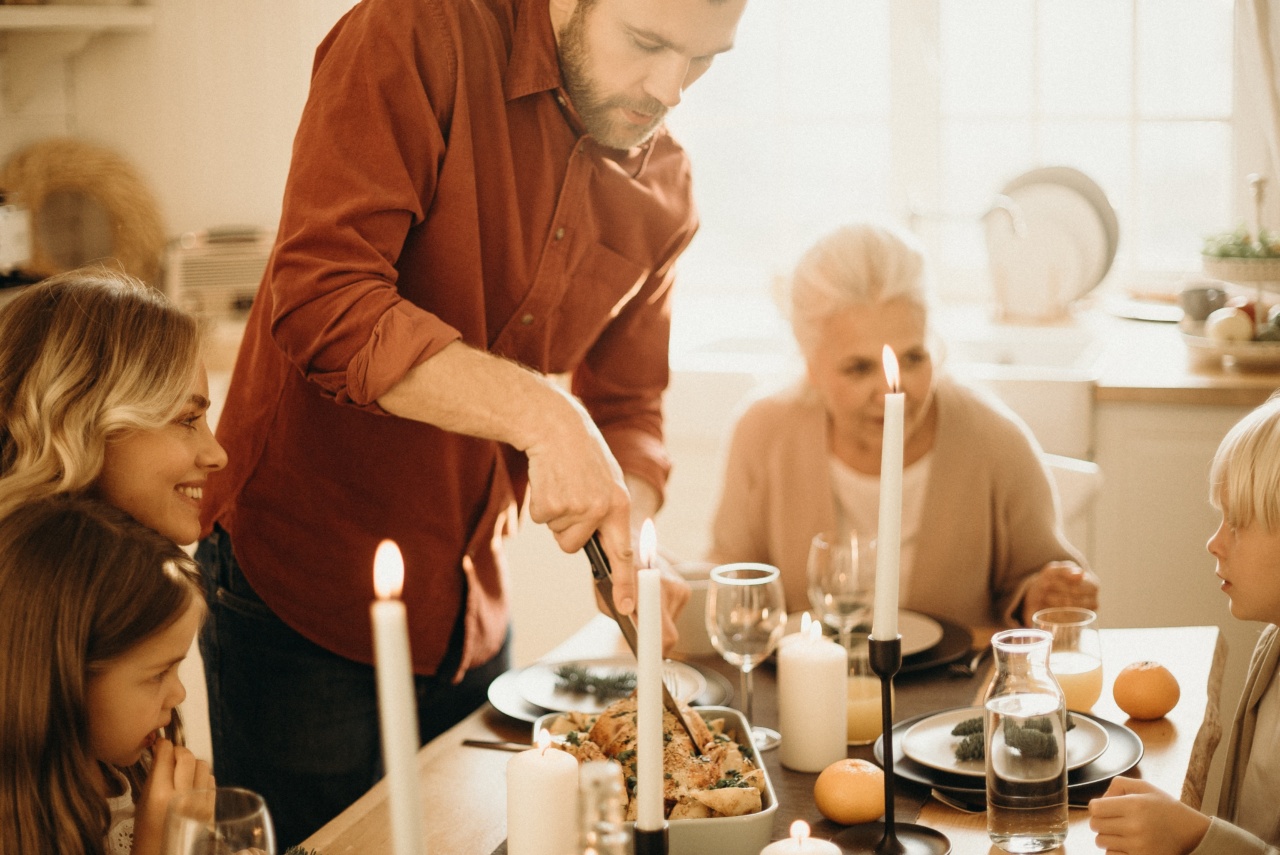Easter is a time of celebration, filled with delicious food and family gatherings. However, it can also be a time where overindulgence leads to feeling bloated and uncomfortable.
To ensure you enjoy the festivities without any digestive issues, here are some tricks to stay bloat-free at your Easter dinner.
1. Plan Your Plate
Before digging into the buffet, take a moment to plan your plate. Fill it with a variety of colorful vegetables, lean proteins, and smaller portions of heavier foods like casseroles or rich desserts.
This way, you’ll be able to enjoy a little bit of everything without going overboard.
2. Chew Slowly
When you’re surrounded by tempting dishes, it’s easy to shovel food into your mouth without fully chewing it. However, eating too quickly can cause bloating and indigestion. Take the time to savor each bite, chewing slowly and thoroughly.
This will aid in proper digestion and prevent bloating.
3. Limit Carbonated Drinks
Carbonated beverages, such as soda or sparkling water, can contribute to bloating. The carbonation can cause gas to build up in your stomach, leading to discomfort. Opt for still, non-carbonated drinks like water or herbal tea instead.
If you can’t resist a fizzy drink, try to limit your intake.
4. Control Your Portions
It’s easy to get carried away with large servings when presented with a festive feast. However, overeating can lead to bloating and discomfort.
Control your portions by using a smaller plate, taking smaller portions of each dish, and going back for seconds only if you’re still genuinely hungry.
5. Fill Up on Fiber
Fiber-rich foods can help prevent bloating by promoting healthy digestion. Prioritize fiber-rich foods like vegetables, whole grains, and legumes on your plate.
These foods add bulk to your stool, making it easier to pass through your digestive system and reducing the likelihood of bloating.
6. Avoid Excessive Salt
High sodium intake can cause water retention and bloating. Be mindful of salty foods like ham, bacon, or processed snacks, and try to limit your sodium intake.
Instead, flavor your dishes with herbs, spices, and other low-sodium seasonings to enhance the taste without adding unnecessary salt.
7. Take Time to Digest
After finishing your meal, resist the temptation to immediately sit down or lie down. Instead, take a leisurely walk around the block or engage in light physical activity. This gentle movement can help stimulate digestion and prevent bloating.
8. Pace Yourself with Alcohol
Alcohol can contribute to bloating and discomfort, especially if consumed in excess. Pace yourself with alcoholic drinks by alternating them with non-alcoholic options.
This will not only help control your alcohol consumption but also keep you hydrated, reducing the chances of bloating.
9. Stay Hydrated
Dehydration can exacerbate bloating and constipation. Make sure to stay hydrated throughout the day by drinking an adequate amount of water. Avoid excessive amounts of sugary or carbonated drinks as they can further contribute to bloating.
10. Avoid Trigger Foods
Each person may have specific foods that trigger bloating or discomfort. Pay attention to your body’s reactions and avoid foods that tend to cause issues for you personally.
Common culprits include beans, broccoli, cabbage, onions, and artificial sweeteners.
Conclusion
By implementing these tricks, you can enjoy your Easter dinner without feeling bloated and uncomfortable afterward. Remember to prioritize portion control, slow and mindful eating, and making healthier choices when it comes to drinks and ingredients.
With a little bit of planning and mindfulness, you can fully savor the festivities while keeping bloating at bay.




























